The Pew Fund Aims to Improve Life for Low-Income Children
For 25 years, supported programs have been serving some of the most vulnerable in the Philadelphia region.
Since its inception 25 years ago, the Pew Fund has awarded more than $200 million to more than 300 organizations throughout the Philadelphia region to help some of the most vulnerable members of our community.
This year, we are paying special attention to low income children and youth. Our area is home to about 900,000 residents 18 or younger—20 percent of whom live in poverty. Within the city limits, the proportion is even higher. Thirty-seven percent of Philadelphia’s youth—126,000 children—are poor, the highest level among the nation’s 10 largest cities.
These children are particularly vulnerable, often uncertain whether their most basic necessities will be met. Research shows that they are also at risk of lagging behind in language, cognitive, and social-emotional development. That means they often are ill-prepared to enter school, perform poorly once they get there, or fail to reach key benchmarks, such as reading proficiency by the end of third grade.
We awarded 45 grants in March, representing $8,588,000 over three years, to improve the circumstances of 22,000 children and families annually. The funded agencies will provide programs in five core areas that reflect research on the needs of this population and best practices for addressing them.
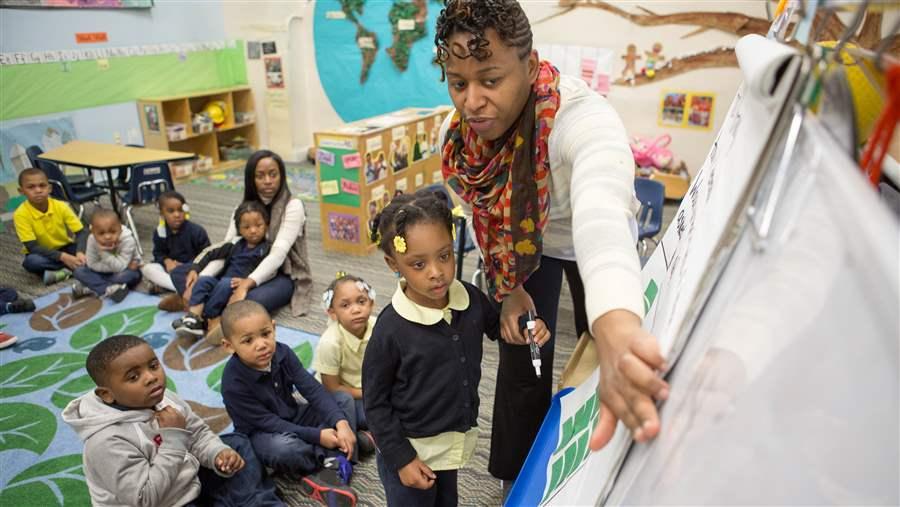 © Children’s Literacy Initiative
© Children’s Literacy InitiativeChildren’s Literacy Initiative is increasing the number of Philadelphia-area pre-K classrooms offering quality early literacy instruction.
High-quality early education and child care
Early education helps children develop the academic and social skills necessary to succeed in school. The three organizations funded in this category provide training and assistance to improve early education programs for low-income children in the region.
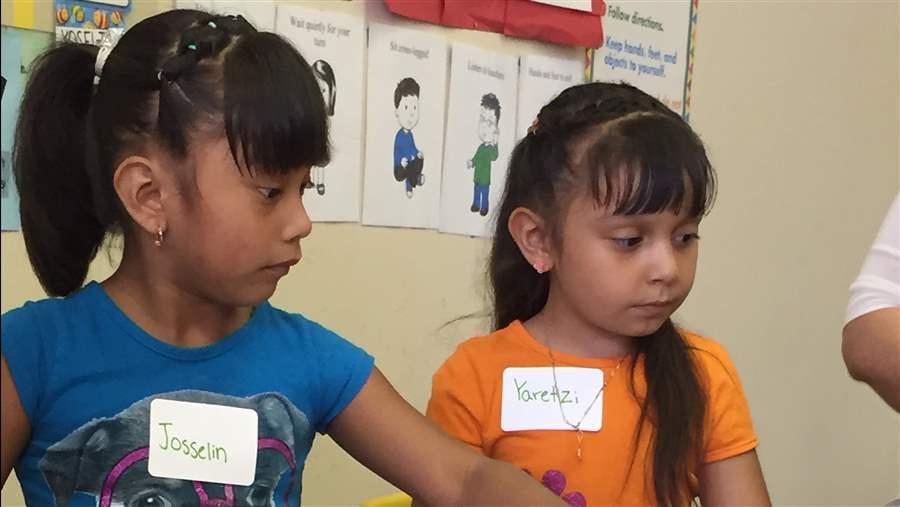 © Maternal Child Health Consortium of Chester County
© Maternal Child Health Consortium of Chester CountyThe Maternal and Child Health Consortium of Chester County engages children in learning activities to ensure school readiness.
Prevention and early intervention services to reduce behavioral and academic problems
Children living in poverty are especially susceptible to developing emotional and behavioral problems, which can become full-blown mental health disorders if not addressed early. Twelve funded agencies are implementing strategies to improve outcomes for these young people and get them back on a healthy development track.
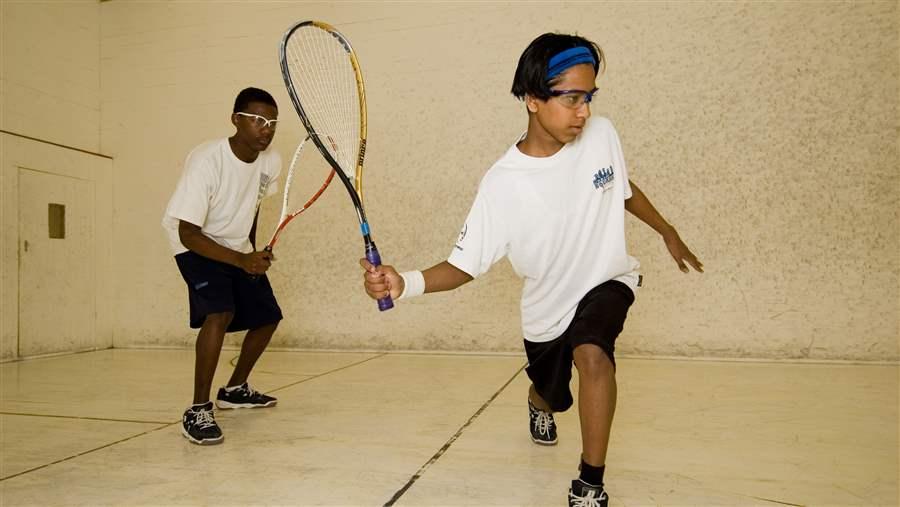 © SquashSmarts
© SquashSmartsSquashSmarts provides free, year-round, out-of-school programs to 6th- through 12th-graders from Philadelphia’s public schools.
Quality out-of-school programs
Art and music, sports, and academic enrichment programs are associated with increased educational engagement, improved self-confidence, and decreased problem behaviors for disadvantaged youth. Seventeen funded organizations provide a variety of these educational and enriching extracurricular activities to low-income children.
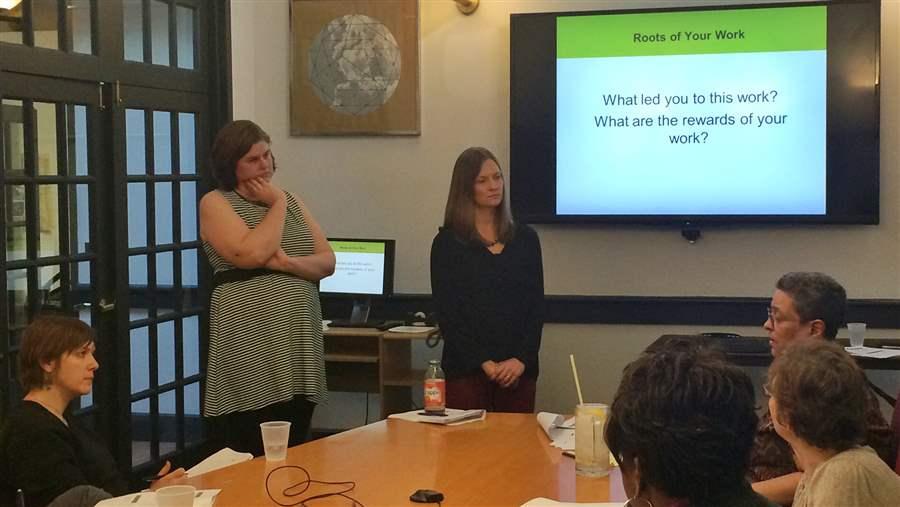 © Support Center for Child Advocates
© Support Center for Child AdvocatesThe Support Center for Child Advocates increases access to mental health services for abused and neglected children through advocacy and training programs.
Access to mental health services
One in 10 children has a serious mental illness and 80 percent of them do not receive treatment because of concerns about stigma, lack of insurance coverage, or a failure to find appropriate services, especially for victims of sexual abuse or domestic violence. The 10 nonprofits funded in this category secure or provide mental health services for children most in need.
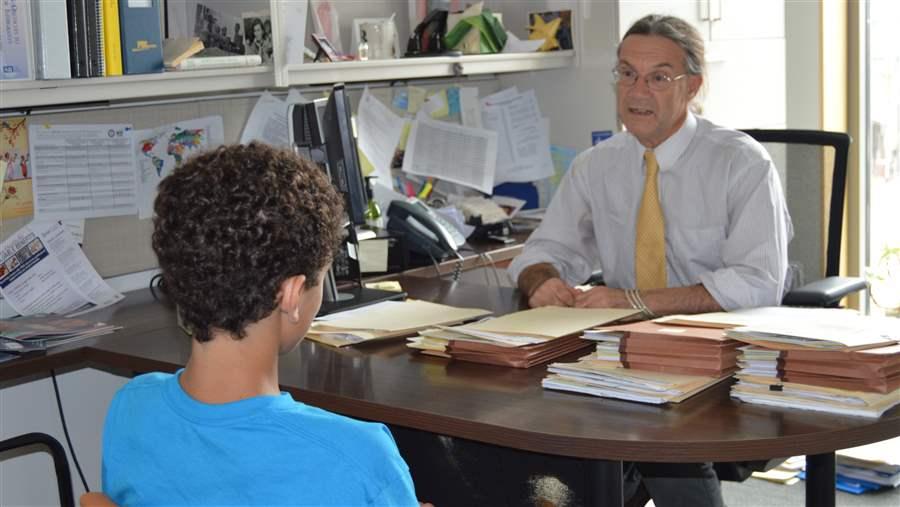 © Community Legal Services
© Community Legal ServicesCommunity Legal Services provides free legal advice and representation to help families secure key public benefits.
Access to public benefits and services
The absence of basic necessities such as food, shelter, and health care undermines the stability and financial security of low-income families and can have long-term consequences for their children. Four funded agencies help parents gain access to and retain public benefits to enhance their children’s healthy development.










